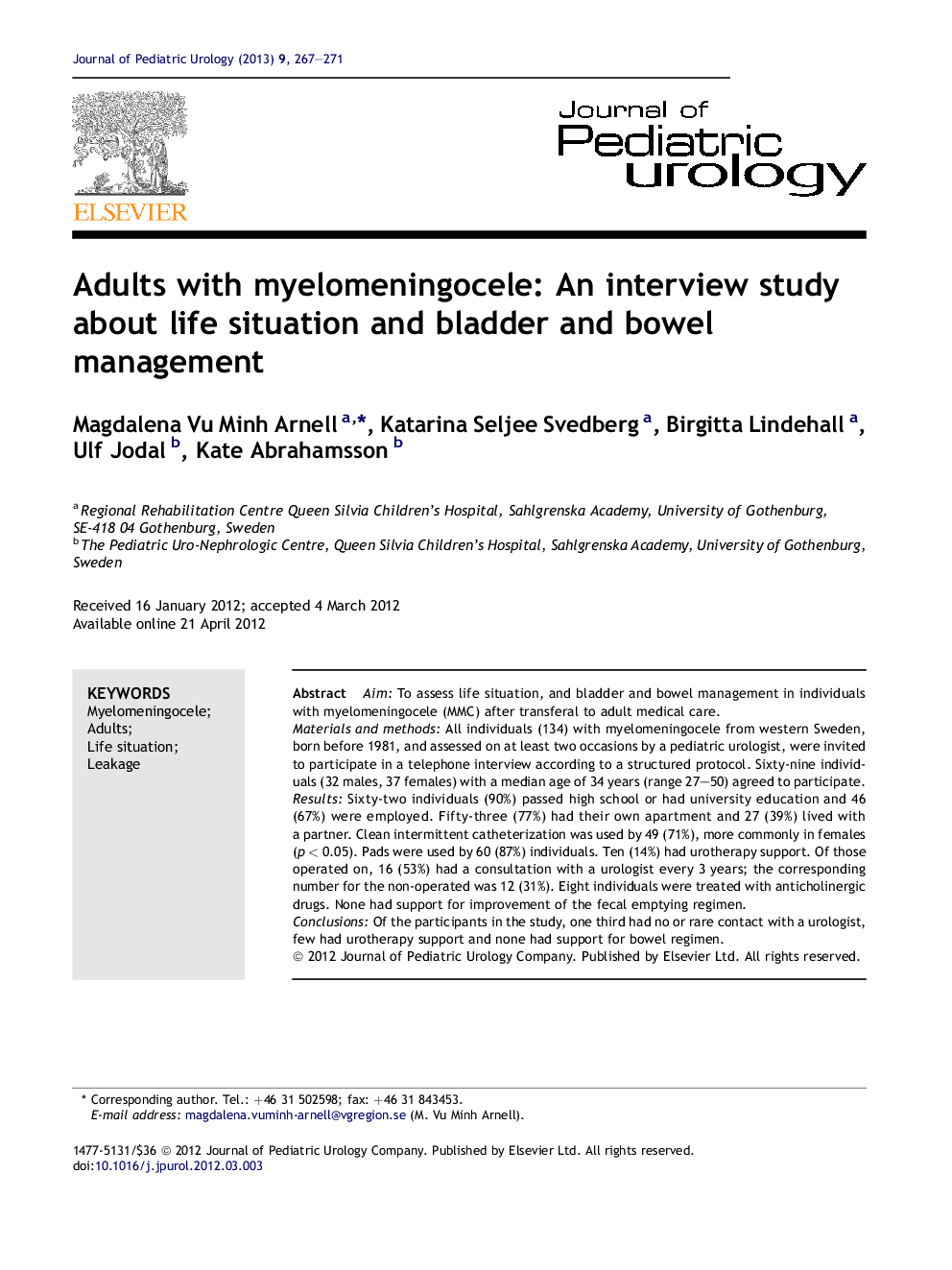| Article ID | Journal | Published Year | Pages | File Type |
|---|---|---|---|---|
| 4162673 | Journal of Pediatric Urology | 2013 | 5 Pages |
AimTo assess life situation, and bladder and bowel management in individuals with myelomeningocele (MMC) after transferal to adult medical care.Materials and methodsAll individuals (134) with myelomeningocele from western Sweden, born before 1981, and assessed on at least two occasions by a pediatric urologist, were invited to participate in a telephone interview according to a structured protocol. Sixty-nine individuals (32 males, 37 females) with a median age of 34 years (range 27–50) agreed to participate.ResultsSixty-two individuals (90%) passed high school or had university education and 46 (67%) were employed. Fifty-three (77%) had their own apartment and 27 (39%) lived with a partner. Clean intermittent catheterization was used by 49 (71%), more commonly in females (p < 0.05). Pads were used by 60 (87%) individuals. Ten (14%) had urotherapy support. Of those operated on, 16 (53%) had a consultation with a urologist every 3 years; the corresponding number for the non-operated was 12 (31%). Eight individuals were treated with anticholinergic drugs. None had support for improvement of the fecal emptying regimen.ConclusionsOf the participants in the study, one third had no or rare contact with a urologist, few had urotherapy support and none had support for bowel regimen.
